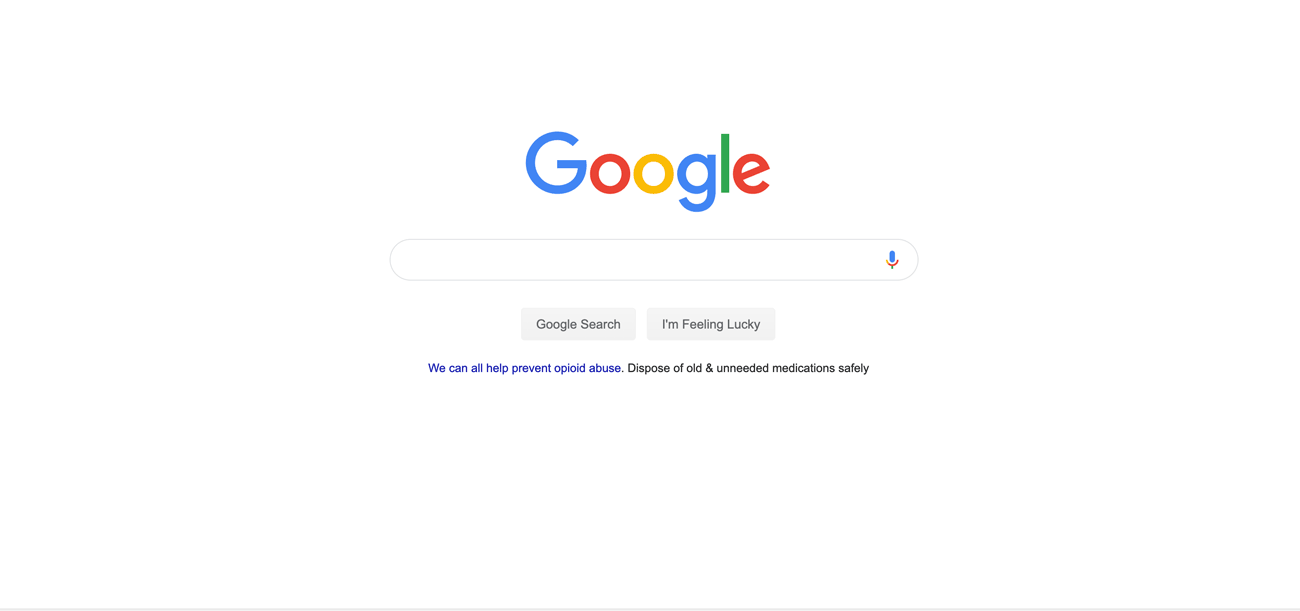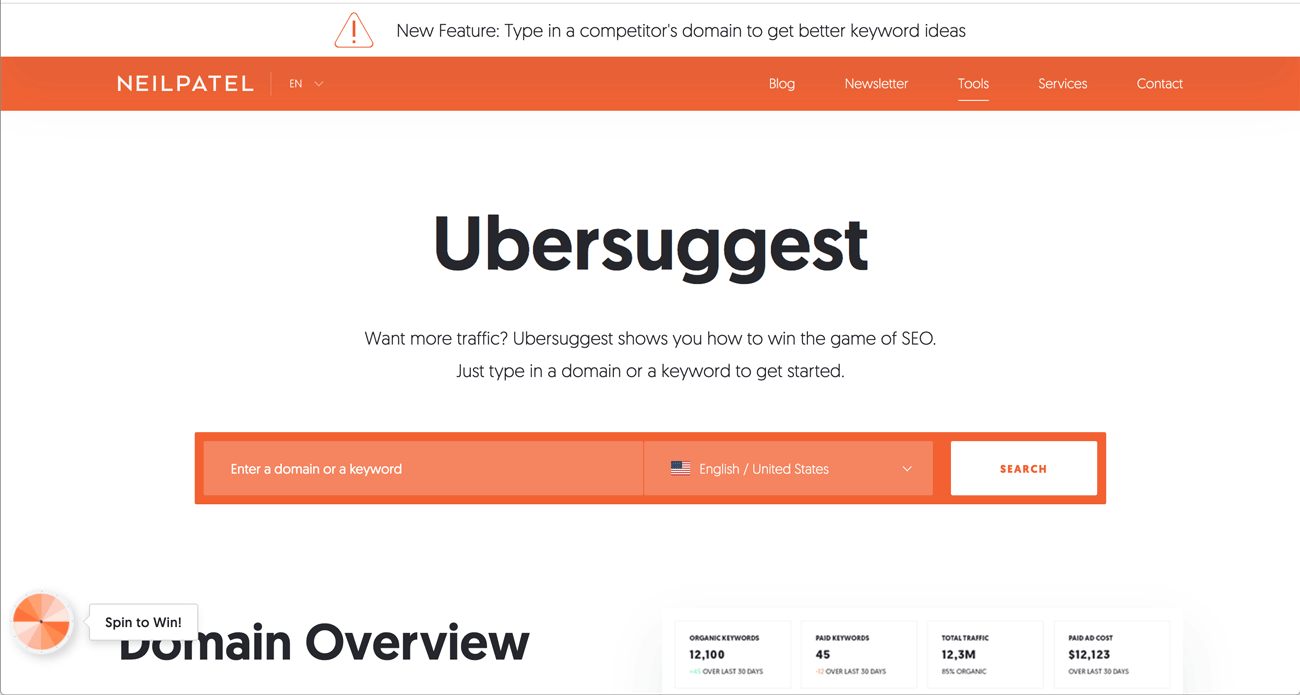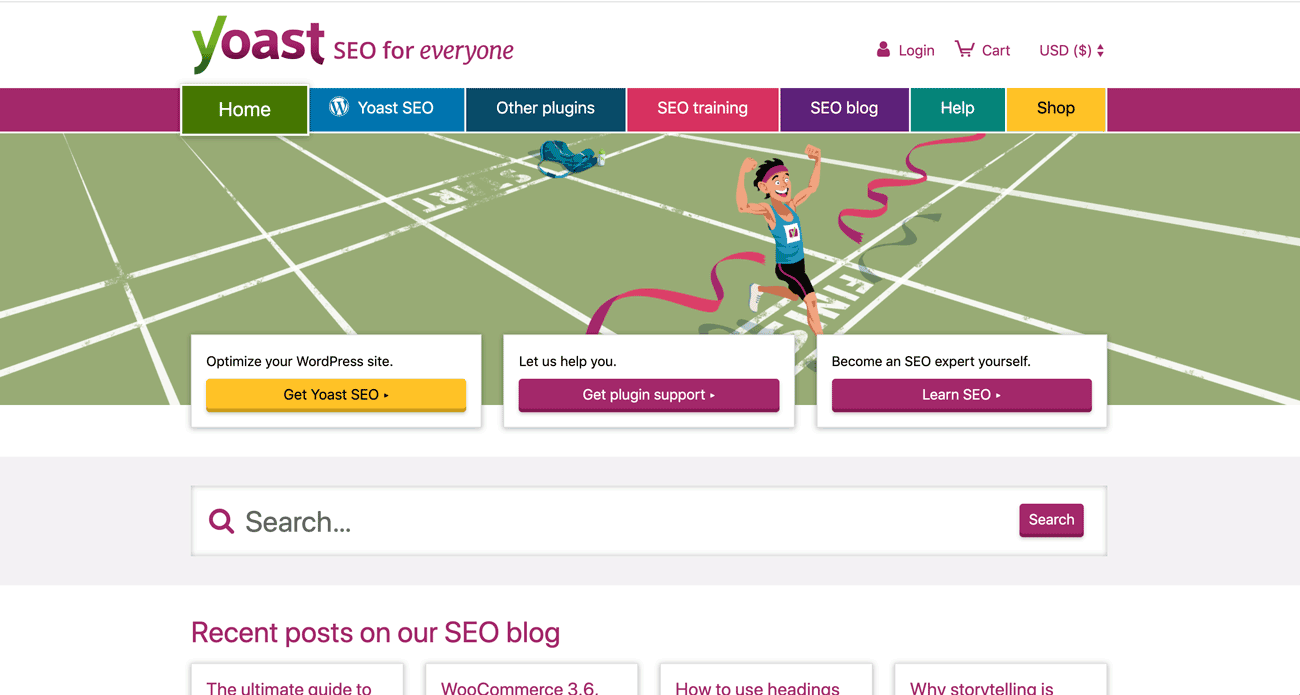5 Simple and Fundamental Ways to Improve SEO for Your Sports Club

Getting your team’s website noticed requires SEO since 93% of online experiences begin with a search engine and 75% percent of people don’t go past the first results page.
Search Engine Optimization (SEO) is the commonplace way webpages are structured so they’re listed in search engine results.
The goal is to reach the top link on a search page as the most relevant piece of information so more users are compelled to click through and visit your website over others.
Organizing your website with SEO can help you get there but, there are quite a few essential ways to apply it.
Below are some more details on sports SEO as well as some vital ways to improve your website to help your team reach the top of the search results.
An Overview of Sports SEO
Search Engine Optimization (SEO) is the practice of increasing your website traffic in both quality and quantity through organic search engine results.

If you have heard the word “algorithm” in conjunction with social media and search engines, you may think that SEO is just a formula for computers.
However, there’s actually a lot of psychology that goes into SEO improvement. You’re essentially trying to figure out what people are looking for online and the type of content they’re searching.
For details, check out How to Optimize Your Sports Team Site for SEO and SEO for Sports Teams and Sports Team Websites – How to Do It Right.
Organic vs the Other Stuff
Because you have likely used a search engine before, you’re familiar with the structure of the page.
The first few results are typically ads from companies who have paid to be put in that spot and the rest are organic. Or in other words, the results that are naturally listed because they’re relevant to the searched terms.
Organic search results are also rankings that made it to the top of the page based on their SEO and these are the types of results that can be achieved with the steps mentioned below.
That means if budget is an issue for you, don’t worry. Studies have shown that only around 2.8% of people actually click on those paid advertisements, anyway.
Instead, you can focus on organic sports SEO. Then, put your money towards that new stadium you’re wanting to build – er – or maybe just a pizza party.
Lock and Key(words)
The cornerstone to SEO to help you unlock the door to more traffic is choosing the right keyword. In the context of SEO, a keyword is a term that users search to find relevant content – “relevant” being the, er, key word here.
Adding keywords to your site’s content can help search engine algorithms place your content right in front of well-suited users.
But, if you choose keywords that aren’t related enough to your topic and content, things can go South real fast. Search engines (read: Google!) will pick up on the fact that your content isn’t applicable for users and won’t rank your site high in search results.
That’s why it’s crucial to pick well-researched keywords that you have thoughtfully considered.
Pick keywords that target your ideal audience, but that your ideal audience would naturally search to find you as well. The goal is to strike a balance between these two key concepts.

Keyword Density
Once you find one to five great options, add them to your site’s content. This can be pages such as blog posts, match announcements, game results, team profile pages and any other page of your team’s site.
Ideally, you should aim to have each keyword added so that it’s mentioned in 0.5% to 2% of the page’s content. This is called keyword density.
You can calculate it by dividing the number of times you used a chosen keyword in your content by the total word count. Then, multiply by 100.
But there’s a couple caveats: keywords should be added so they sound natural in a sentence when you read it. You should also only use a keyword (that’s repeated throughout a page) on one page of your site.
That means you shouldn’t choose a keyword and use it in your content across multiple pages of your site.
Entering keywords naturally into your content helps Google’s algorithm know you’re writing helpful, relevant content so your site isn’t skipped over in search results.
Choosing different keywords across each page of your website ensures you can have more chances to reach your audience on multiple first pages of search results and you won’t have each of your site’s pages competing for the number one spot on the same single page of results.
Long-Tail Keywords
Keywords are a single word, but they can also contain multiple words to help you better optimize your content. This is what’s known as a long-tail keyword.
For example, you could choose the keyword “sports”. Or, you could get even more specific and relevant to your (future) fans. You can accomplish this by choosing a long-tail keyword like “best sports team”.
For details, check out What are Keywords?
We’re All in this Together
It may feel like you’re trying to fool a system, but search engines actually want to help you succeed.
Google has a Search Engine Optimization Starter Guide, and they also have forums and live office-hour hangouts for Webmasters and SEO.
Here are a number of other resources that you may find useful as you dive into the sports SEO world:
- The Moz SEO Learning Center
- Search Engine Journal
- 58 Resources to Help You Learn and Master SEO
- How to Optimize Your Sports Team Site for SEO
- SEO for Sports Teams and Sports Team Websites – How to Do It Right
Simple Ways to Improve Your Sports SEO
Strategy isn’t just for the field. There are lots of ways you use SEO to get your listing to the top of page number one.
Here are a number of helpful areas that can help boost your sports SEO ranking.
1. Thorough Keyword Research
Choosing the right keywords takes research. It can sound as overwhelming as scoring a hat trick, but it doesn’t have to be that complicated.
Using the details mentioned earlier, you can also use a tool like Google’s Keyword Planner or the free Ubersuggest keyword research tool.
Ubersuggest can help your narrow down the perfect keyword for your page to help get that SEO ranking sky high.

You can see how much a keyword or long-tail keyword is being searched and see suggestions for other keywords that may be a better fit.
This tool also automatically lets you know whether your content has a good chance of ranking with the keyword you picked.
2. Use a Plugin for Sports SEO
WordPress has a number of great plugins that help you with your site’s sports SEO, but the most popular one is Yoast.
Yoast is the authority on all things SEO and has a number of tutorials, recommendations and support on their site.

You can also take things one step further with an excellent extension. Yoast and SportsPress have partnered to create a free Yoast SEO extension.
The extension lets you generate search engine-friendly page titles for each of your pages, add your match details to titles and also automatically add your team names.
When search engine crawlers see that your site structure is up to snuff and the headings match your content, it will be much easier for your future fans to find you on Google or any other search engine.
For all the details, take a look at the extension page or go ahead and download it from your ThemeBoy account and start playing around.
3. Upping Your Content Game
As nice as it would be to just worry about keywords, a huge factor that impacts your SEO ranking is how much time people spend on your website per visit. This concept is known as dwell time.
Make sure you have content that’s engaging and that keeps your users and fans on your page. Break it up with media content you have developed such as videos and pictures. A wall of text does nobody any SEO favours because it’s difficult to focus on so also make sure you’re using WordPress headings.
Here are a few content ideas to get your imagination going:
- How to Get Started with Content Marketing for Sports Teams
- A Guide to Starting a Blog on Your Sports Team Website
- How to Plan Your Content Marketing Strategy For the New Year
Also, if users like your site enough to bookmark it on Chrome, Google’s browser, that’s a huge indicator to Google that your site has value and your rankings improve as a result.
4. Link It Up
It’s rare to visit a webpage nowadays with no links leading to more information or even referencing another site on the same topic.
Google doesn’t want you to pretend like the internet isn’t ultra-connected. It also doesn’t want you hoarding all your users so they never leave your site.
Links are an essential part of your SEO ranking so below are a couple quick points to remember.
Internal vs External
There are two types of links you need to know for SEO: internal links associate the user to other pages on the same site and external links associate your site with pages from other websites.
Both are necessary for a site’s ranking and should be included often. Internal links help Google determine a site’s structure and hierarchy as well as the relationship between pages.
External links pointing towards other sites help you increase relevance, improve your reputation and give your users more overall value.
Sites That Have Your Back(link)
And hey, link to someone else’s website and there’s a chance they’ll link right back to you.
This is called a backlink. As long as it was naturally included, it helps Google know your site is an excellent resource because other users are willing to reference it.
The result is a boost in your search engine rankings.
Fix It Up for Google Crawlers
Google and other search engines have programs that run automatically to scan (or crawl) websites all over the internet multiple times per second. They’re called crawlers. They search for relevant details that can be used later to inform and populate search results. This is called indexing.
Although the word may sound cringe-worthy to you if you find spiders creepy, you want crawlers to be able to reach your site. That way, it can be indexed and included in search engine results.
Fortunately, WordPress and SportsPress are automatically optimized for crawlers – and not the creepy variety.
SEO helps you provide relevant and optimal details to those crawlers. It’s don on autopilot to help your site rank better in search results without having to give it another thought.
If the Google crawlers check out your site and find links that don’t go anywhere or that go to websites that don’t exist anymore, your ranking goes down.
To not appear like you haven’t touched your site since the 90’s, make sure all your links are up to date and are in working order.
If that seems like a dreaded task, use tools like Screaming Frog SEO Spider, Google Webmaster Tool or W3C Link Checker to help you make quick work of it.
5. High Readability Scores for the Win
Clarity of thought and simplicity of communication is so crucial on the internet that’s jam-packed with ideas. Making sure you’re catering to all your readers (and fans), big and small, will help your SEO ranking tremendously.
Yoast has a really nifty tool to help gauge your site’s readability, but here are a few quick tips to help you edit your content so it’s efficient to read:
- Keep sentence length under 25 words.
- Don’t use a passive voice.
- Embrace transition words such as “because”, “therefore”, or “most importantly”.
- Use the Flesch Reading Score analysis and aim for a score of 60-70 for web copy.
Depending on your style of writing, you may not always be able to follow all the tips above. This is okay as long as your content is still relevant to your audience. This means it answers the questions they had when they googled the topic.
As a website for a sports team, your content is probably not going to get too pompous. Still, it’s a good idea to go over your website with an eye for readability just to be active and intentional about your aim to improve your sports SEO.
Advanced Sports SEO with Analytics
If you’ve already done some SEO analysis before, you may be familiar with many of these tips.
If that’s the case, there are many ways you can up your game such as verifying that Google crawlers are indexing your site, decreasing your bounce rate, increasing your ranking for pages by improving its content, decreasing abandonment and more.
You can check out Improve Your SEO in 30 Minutes With These Google Analytics Insights for details.
Sports SEO: Optimized
It’s easy to get lost in a sea of sports SEO possibilities. But, remember you can’t go wrong by primarily making your site for users, not search engines.
You could put that keyword in 500 times, but your readability will suffer and so will your readership and ranking. Be helpful and make your content valuable, then SEO and you’ll be well on your way to total optimization.
Has your club scrimmaged with the world of sports SEO? What tools or tricks have you found helpful? Did you notice a difference after implementing it? Let us know over on Twitter or Facebook.
